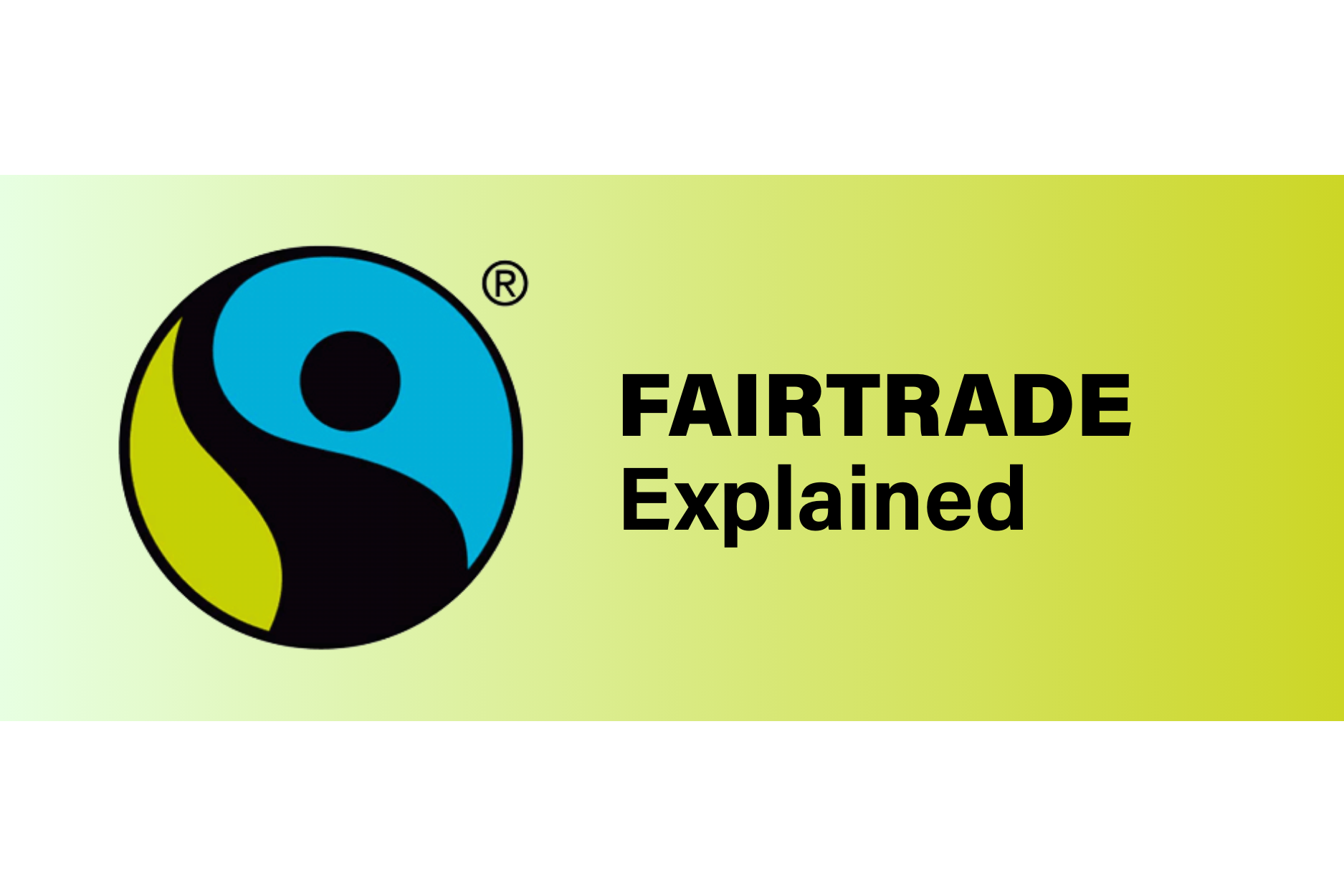
Fairtrade: Why It Matters for Farmers, Consumers, and the Planet
You’ve probably seen the Fairtrade logo stamped on coffee, chocolate, tea, bananas, and even beauty products. At first glance, it feels like a symbol of “doing the right thing”—but what does Fairtrade really mean? Is it just clever marketing, or does it create real impact for farmers, workers, and the environment?
The truth is, Fairtrade is more than a feel-good label. It’s a global movement that protects vulnerable producers, ensures fair wages, supports gender equality, promotes sustainability, and empowers consumers to make ethical choices. In other words, Fairtrade isn’t just about buying coffee—it’s about reshaping global trade into something fairer, more transparent, and more sustainable.
In this guide, we’ll dive deeper into what Fairtrade means, why it matters, and the five powerful reasons you should look for the Fairtrade mark the next time you shop.
What Exactly is Fairtrade?
Fairtrade is a certification system designed to create better trading conditions for farmers and workers in developing countries. It’s about fairness—fair pay, fair working conditions, and fair opportunities for growth.
Launched in the 1950s and expanded over decades, the Fairtrade movement now reaches:
-
75 countries worldwide
-
1.7 million farmers and workers
-
Over 30,000 Fairtrade-certified products
When a product carries the Fairtrade mark, it means it has passed strict standards that protect worker rights, promote safe farming practices, and ensure fair pricing. This includes:
-
Fairtrade Minimum Price: A safety net that protects farmers from volatile market swings, ensuring they always receive a fair base rate for their goods.
- Fairtrade Premium: An extra sum invested back into communities—whether to build schools, improve healthcare, fund clean water systems, or transition to organic farming.
By choosing Fairtrade, you’re not just buying a product—you’re contributing to a global effort that advances several United Nations Sustainable Development Goals (SDGs), including:
- No poverty
- Gender equality
- Clean water and sanitation
- Decent work and economic growth
- Responsible consumption and production
- Life below water (marine sustainability)
Five Reasons to Support Fairtrade
1. Empowering Farmers and Workers

One of the strongest pillars of Fairtrade is empowerment. Many farmers in developing countries are often at the mercy of market crashes, middlemen, and unfair trade contracts. [1]Fairtrade changes that by:
-
Protecting workers from exploitation and unsafe conditions.
-
Giving farmers a voice in decisions that affect them, from pricing to policies.
-
Providing access to training, safety equipment, and community support.
For example, some Fairtrade cooperatives use their premiums to run financial literacy workshops, helping farmers manage contracts and build long-term stability. Others invest in safe water and sanitation facilities, ensuring healthier communities.
|
Why it matters: Fairtrade creates dignity and stability for producers who would otherwise be vulnerable to poverty and exploitation. |
2. Promoting Gender Equality and Inclusion

Fairtrade isn’t just about fair wages—it’s also about fair opportunities. Women, who are often underrepresented in agriculture, gain access to leadership roles, equal pay, and decision-making power in Fairtrade cooperatives. [2]
-
Koperasi Kopi Wanita Gayo (KKWG) in Indonesia is Southeast Asia’s first all-women coffee cooperative. Its 470 members have grown in skill, confidence, and independence, using Fairtrade premiums to fund training in coffee cupping and soil fertility.
-
In Peru, the Acopagro cooperative has transformed communities once plagued by drug trafficking into thriving hubs for cocoa farming, with women like Wendy Rodriguez leading the charge.
- In Samoa, Women in Business Development has created intergenerational opportunities by supporting women to grow and trade organic coconut products—ensuring livelihoods for decades to come.
| Why it matters: Fairtrade empowers women to break cycles of poverty and become leaders in their communities. |
3. Protecting the Environment

Fairtrade standards require environmentally responsible farming practices. [3] This includes:
-
Minimizing the use of harmful chemicals
-
Managing waste safely
-
Preserving soil fertility and water resources
- Prohibiting genetically modified organisms (GMOs)
Although not every Fairtrade farm is certified organic, many use the Fairtrade Premium to invest in sustainable and organic farming methods. This reduces environmental damage while producing healthier crops for consumers.
| Why it matters: Supporting Fairtrade means supporting climate-conscious farming that safeguards ecosystems for future generations. |
4. Market Opportunities for Ethical Businesses

For manufacturers, Fairtrade is more than an ethical badge—it’s a smart business decision. [4] Research shows that:
-
8 in 10 consumers recognize and trust the Fairtrade logo (GlobeScan, 2015).
-
Products with the Fairtrade mark often receive more positive brand perception.
- Businesses benefit from long-term, stable trading partnerships with Fairtrade cooperatives.
This not only boosts brand reputation but also supports a growing consumer demand for ethical, transparent sourcing.
| Why it matters: Fairtrade helps businesses grow while ensuring that growth benefits both ends of the supply chain. |
5. Giving Consumers Ethical Power

Every purchase is a vote. By choosing Fairtrade, consumers actively support:
-
Fair wages and safe working conditions
-
Gender equality and social justice
- Environmentally sustainable practices
For shoppers in countries like Australia, Fairtrade creates a bridge between everyday choices—like buying coffee pods—and global impact. [5]
|
Why it matters: When you choose Fairtrade, you’re not just buying coffee or chocolate—you’re funding schools, hospitals, and fairer futures. |
Fairtrade and Savvy: A Shared Commitment
At Savvy, we’re proud to support Fairtrade because we believe in products that benefit both people and planet. Our Savvy Focus Coffee Pods are made with Fairtrade-certified beans sourced from sustainable, ecological farms.
Not only do they deliver longer-lasting natural energy, mood support, and stress reduction, but every pod purchased also contributes to a fairer global trade system.
Savvy stands by the principle that great products should never come at the cost of exploitation.
Why Fairtrade is More Relevant Than Ever
With global supply chains under pressure and climate change threatening agriculture, the Fairtrade movement is more critical today than when it first began. Choosing Fairtrade means:
-
Standing against exploitation
-
Supporting sustainable farming
-
Empowering women and future generations
- Building resilient communities
So next time you shop—whether it’s for coffee, chocolate, tea, or even clothing—look for the Fairtrade logo. Your small choice has the power to create big change.
Key Takeaway
Fairtrade is not just a label—it’s a promise of fairness, sustainability, and empowerment. By supporting it, you’re joining a global movement that uplifts farmers, protects the planet, and ensures that trade truly benefits everyone.
Look for the logo. Choose Fairtrade. Create impact.
TL;DR (Too Long, Didn’t Read Summary)
Fairtrade is more than just a label on coffee, chocolate, or bananas—it’s a global movement that ensures farmers and workers receive fair wages, safe working conditions, and opportunities to thrive. By supporting Fairtrade, consumers directly contribute to reducing poverty, advancing gender equality, and protecting the environment through sustainable farming practices.
The Fairtrade system provides a Minimum Price to safeguard farmers from market volatility, while the Fairtrade Premium funds vital community projects like schools, hospitals, clean water, and organic farming transitions. Women’s cooperatives and farming communities across Asia, South America, and the Pacific Islands are using Fairtrade to create new opportunities, strengthen local economies, and promote intergenerational change.
For businesses, Fairtrade strengthens brand trust and supports long-term, transparent trade partnerships. For consumers, it’s a way to shop ethically while knowing their choices create positive global impact. In Australia, Fairtrade coffee, chocolate, and other certified products are becoming increasingly available, making it easier than ever to align purchases with values.
In short: choosing Fairtrade means supporting fairness, sustainability, and empowerment worldwide—one cup of coffee at a time.
References:
[1] Effects of Fairtrade on the livelihoods of poor rural workers
[2] The Impact of Fair Trade on Social and Economic Development: A Review of the Literature
[3] A Role of Fair Trade Certification for Environmental Sustainability
[4] Ethical Entrepreneurship and Fair Trade
[5] Research on Fair Trade Consumption—A Review







